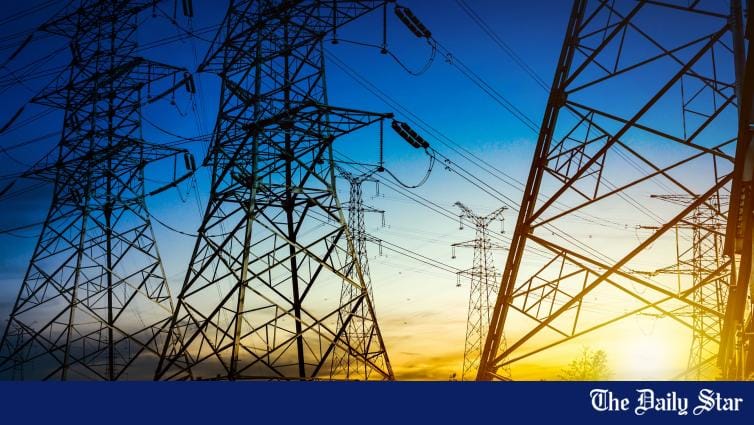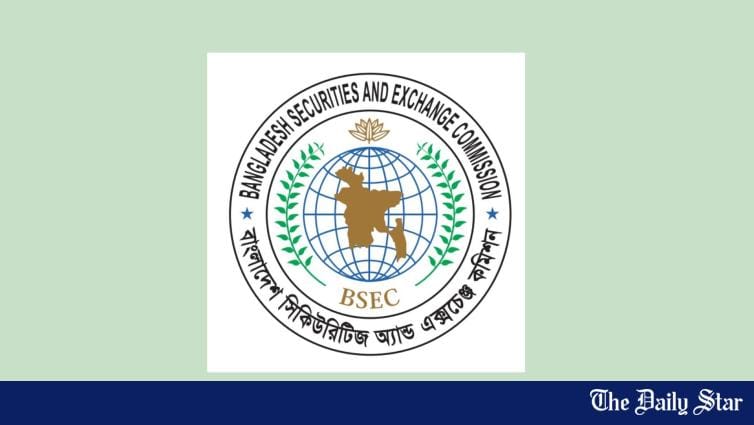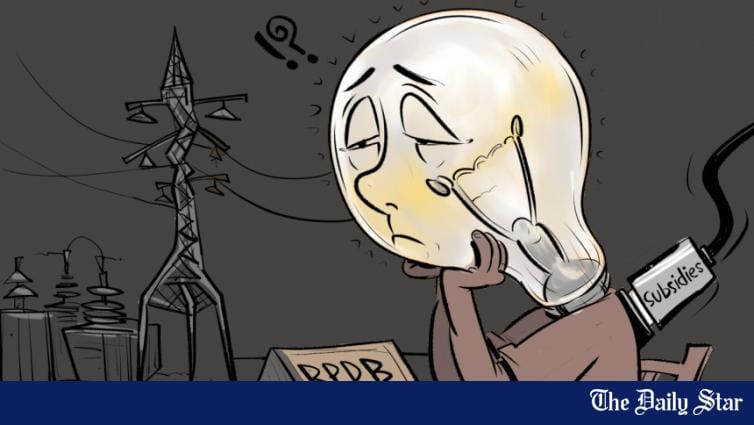- Copy to clipboard
- Thread starter
- #381
Saif
Senior Member
- Joined
- Jan 24, 2024
- Messages
- 15,397
- Reaction score
- 7,865
- Points
- 209
- Nation

- Residence

- Axis Group


Bangladesh eyes to procure 5 spot LNG cargoes in May
Bangladesh is eyeing to import five spot liquefied natural gas (LNG) cargoes in May to meet mounting summer demand. State-run Rupantarita Prakritik Gas Company Ltd (RPGCL) has already bought two spot LNG cargoes and sought to buy three more from spot market for May delivery windows, a senior RPGCL
Bangladesh eyes to procure 5 spot LNG cargoes in May
FE ONLINE REPORT
Published :
Apr 15, 2025 19:59
Updated :
Apr 15, 2025 20:17

Bangladesh is eyeing to import five spot liquefied natural gas (LNG) cargoes in May to meet mounting summer demand.
State-run Rupantarita Prakritik Gas Company Ltd (RPGCL) has already bought two spot LNG cargoes and sought to buy three more from spot market for May delivery windows, a senior RPGCL official told The Financial Express Tuesday.
The tender evaluation committee is currently evaluating three tenders for May 15-16, May 22-23 and May 25-26 delivery windows.
The country’s energy demand has gone up from early April with the advent of summer and is expected to grow further with the rise of mercury.
Bangladesh bought four spot LNG cargoes for the delivery windows of the past two months – April and March.
The bid winners will deliver the LNG cargoes at Moheshkhali Island in the Bay of Bengal, with options to discharge the cargo at either of the country’s two floating storage regasification units (FSRUs) located on Moheshkhali Island.
The RPGCL, a wholly owned subsidiary of state-run Bangladesh Oil, Gas, and Mineral Corporation, or Petrobangla, looks into LNG trades in Bangladesh.
The volume of each of the spot LNG cargoes will also be around 3.36 million British Thermal unit (MMBtu).
Bangladesh previously awarded its latest spot LNG cargo tender to TotalEnergies Gas and Power Ltd for May 10-11 delivery window at $12.68 per MMBtu.
It currently imports LNG from Qatar Energy and OQ Trading international under long term deals and purchases LNG also from spot market to re-gasify LNG in its two operational FSRUs having the total capacity of 1.10 billion cubic feet per day (Bcfd).
The country has been reeling an acute energy crisis as its natural gas output is depleting.
Bangladesh has been rationing gas supply to industries, power plants and other gas-guzzling industries to cope with the mounting demand.
FE ONLINE REPORT
Published :
Apr 15, 2025 19:59
Updated :
Apr 15, 2025 20:17
Bangladesh is eyeing to import five spot liquefied natural gas (LNG) cargoes in May to meet mounting summer demand.
State-run Rupantarita Prakritik Gas Company Ltd (RPGCL) has already bought two spot LNG cargoes and sought to buy three more from spot market for May delivery windows, a senior RPGCL official told The Financial Express Tuesday.
The tender evaluation committee is currently evaluating three tenders for May 15-16, May 22-23 and May 25-26 delivery windows.
The country’s energy demand has gone up from early April with the advent of summer and is expected to grow further with the rise of mercury.
Bangladesh bought four spot LNG cargoes for the delivery windows of the past two months – April and March.
The bid winners will deliver the LNG cargoes at Moheshkhali Island in the Bay of Bengal, with options to discharge the cargo at either of the country’s two floating storage regasification units (FSRUs) located on Moheshkhali Island.
The RPGCL, a wholly owned subsidiary of state-run Bangladesh Oil, Gas, and Mineral Corporation, or Petrobangla, looks into LNG trades in Bangladesh.
The volume of each of the spot LNG cargoes will also be around 3.36 million British Thermal unit (MMBtu).
Bangladesh previously awarded its latest spot LNG cargo tender to TotalEnergies Gas and Power Ltd for May 10-11 delivery window at $12.68 per MMBtu.
It currently imports LNG from Qatar Energy and OQ Trading international under long term deals and purchases LNG also from spot market to re-gasify LNG in its two operational FSRUs having the total capacity of 1.10 billion cubic feet per day (Bcfd).
The country has been reeling an acute energy crisis as its natural gas output is depleting.
Bangladesh has been rationing gas supply to industries, power plants and other gas-guzzling industries to cope with the mounting demand.



















